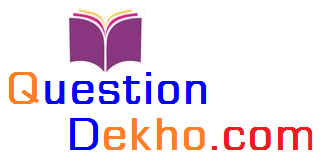CTET Paper I Examination is a qualifying test conducted by CBSE, New Delhi to select the eligible candidates for the post of Teacher in CBSE Affiliated Primary School (Class I to VI). CTET Paper 1 is conducted 2 times every year. CTET Syllabus Paper 1 & Exam Pattern is described below.
CTET Paper 1 Exam Pattern :
CTET Paper I questions has the below given structure and contents.
- 150 Multiple Choice Questions
- Each questions carries 1 mark, full mark is 150.
- Time Duration is 2 Hour and 30 Minutes.
- No negative marking for wrong answer
In CTET Paper-I Exam, the question will be asked from the following Subjects.
1. Child Development & Pedagogy : 30 MCQ : 30 Marks
2. Language I : 30 MCQ : 30 Marks
3. Language II : 30 MCQ : 30 Marks
4. Mathematics : 30 MCQ : 30 Marks
5. Environmental Studies : 30 MCQ : 30 Marks
CTET Syllabus Paper 1 :
Chapter wise full syllabus for Paper 1 of Central Teacher Eligibility Test is mentioned below. Remember in every chapter 15 questions will be from theory paper and 15 questions from the Pedagogy related to that subject.
I. Child Development and Pedagogy ( 30 Questions)
a) Child Development (Primary School Child) 15 Questions
- Concept of development and its relationship with learning Principles of the development of children
- Influence of Heredity & Environment
- Socialization processes: Social world & children (Teacher, Parents, Peers)
- Piaget, Kohlberg and Vygotsky: constructs and critical perspectives
- Concepts of child-centered and progressive education
- Critical perspective of the construct of Intelligence
- Multi Dimensional Intelligence
- Language & Thought
- Gender as a social construct; gender roles, gender-bias and educational practice
- Individual differences among learners, understanding differences based on diversity of language, caste, gender, community, religion etc.
- Distinction between Assessment for learning and assessment of learning; School-Based Assessment, Continuous & Comprehensive Evaluation: perspective and practice
- Formulating appropriate questions for assessing readiness levels of learners; for enhancing learning and critical thinking in the classroom and for assessing learner achievement.
b) Concept of Inclusive education and understanding children with special needs 5 Questions
- Addressing learners from diverse backgrounds including disadvantaged and deprived
- Addressing the needs of children with learning difficulties,‘impairment’ etc.
- Addressing the Talented, Creative, Specially abled Learners
c) Learning and Pedagogy 10 Questions
- How children think and learn; how and why children ‘fail’ to achieve success in school performance.
- Basic processes of teaching and learning; children’s strategies of learning; learning as a social activity; social context of learning.
- Child as a problem solver and a ‘scientific investigator’
- Alternative conceptions of learning in children, understanding children’s ‘errors’ as significant steps in the learning process.
- Cognition & Emotions
- Motivation and learning
- Factors contributing to learning – personal & environmental
II. Language I. 30 Questions
a) Language Comprehension 15 Questions
- Reading unseen passages – two passages one prose or drama and one poem with questions on comprehension, inference, grammar and verbal ability (Prose passage may be literary, scientific, narrative or discursive)
b) Pedagogy of Language Development 15 Questions
- Learning and acquisition
- Principles of language Teaching
- Role of listening and speaking; function of language and how children use it as a tool
- Critical perspective on the role of grammar in learning a language for communicating ideas verbally and in written form
- Challenges of teaching language in a diverse classroom; language difficulties, errors and disorders
- Language Skills
- Evaluating language comprehension and proficiency: speaking, listening, reading and writing
- Teaching- learning materials: Textbook, multi-media materials, multilingual resource of the classroom
- Remedial Teaching
III. Language – II 30 Questions
a) Comprehension 15 Questions
- Two unseen prose passages (discursive or literary or narrative or scientific) with question on comprehension, grammar and verbal ability
b) Pedagogy of Language Development 15 Questions
- Learning and acquisition
- Principles of language Teaching
- Role of listening and speaking; function of language and how children use it as a tool
- Critical perspective on the role of grammar in learning a language for communicating ideas verbally and in written form;
- Challenges of teaching language in a diverse classroom; language difficulties, errors and disorders
- Language Skills
- Evaluating language comprehension and proficiency: speaking, listening, reading and writing
- Teaching – learning materials: Textbook, multi-media materials, multilingual resource of the classroom
- Remedial Teaching
IV. Mathematics 30 Questions
a) Content 15 Questions
- Geometry
- Shapes & Spatial Understanding
- Solids around Us
- Numbers
- Addition and Subtraction
- Multiplication
- Division
- Measurement
- Weight
- Time
- Volume
- Data Handling
- Patterns
- Money
b) Pedagogical issues 15 Questions
- Nature of Mathematics/Logical thinking; understanding children’s thinking and reasoning patterns and strategies of making meaning and learningPlace of Mathematics in Curriculum
- Language of Mathematics
- Community Mathematics
- Evaluation through formal and informal methods
- Problems of Teaching
- Error analysis and related aspects of learning and teaching
- Diagnostic and Remedial Teaching
V. Environmental Studies 30 Questions
a) Content 15 Questions
- I. Family and Friends:
- 1.1 Relationships
- 1.2 Work and Play
- 1.3 Animals
- 1.4Plants
- II. Food
- III. Shelter
- IV. Water
- V. Travel
- VI. Things We Make and Do
b) Pedagogical Issues 15 Questions
- Concept and scope of EVS
- Significance of EVS, integrated EVS
- Environmental Studies & Environmental Education
- Learning Principles
- Scope & relation to Science & Social Science
- Approaches of presenting concepts
- Activities
- Experimentation/Practical Work
- Discussion
- CCE
- Teaching material/Aids
- Problems
